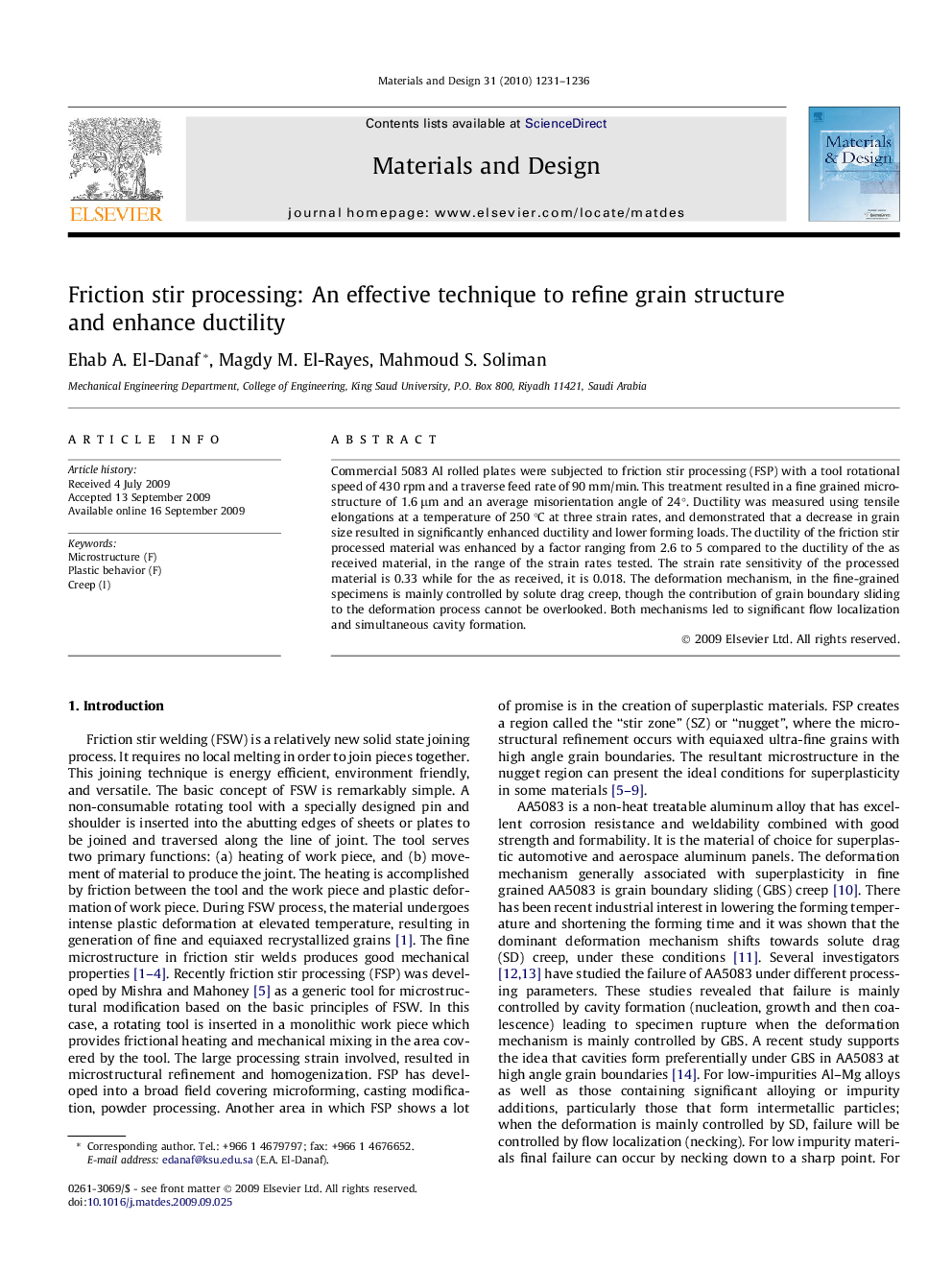| Article ID | Journal | Published Year | Pages | File Type |
|---|---|---|---|---|
| 832488 | Materials & Design (1980-2015) | 2010 | 6 Pages |
Commercial 5083 Al rolled plates were subjected to friction stir processing (FSP) with a tool rotational speed of 430 rpm and a traverse feed rate of 90 mm/min. This treatment resulted in a fine grained microstructure of 1.6 μm and an average misorientation angle of 24°. Ductility was measured using tensile elongations at a temperature of 250 °C at three strain rates, and demonstrated that a decrease in grain size resulted in significantly enhanced ductility and lower forming loads. The ductility of the friction stir processed material was enhanced by a factor ranging from 2.6 to 5 compared to the ductility of the as received material, in the range of the strain rates tested. The strain rate sensitivity of the processed material is 0.33 while for the as received, it is 0.018. The deformation mechanism, in the fine-grained specimens is mainly controlled by solute drag creep, though the contribution of grain boundary sliding to the deformation process cannot be overlooked. Both mechanisms led to significant flow localization and simultaneous cavity formation.
